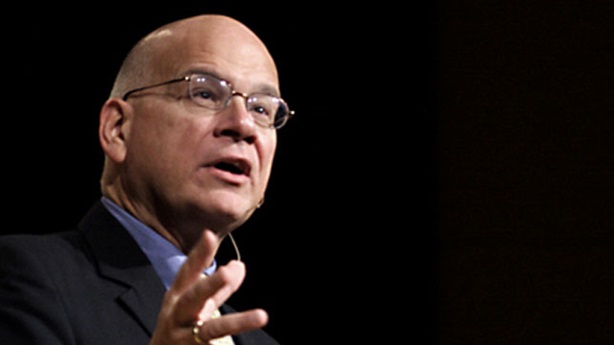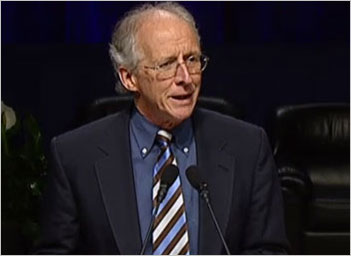Rev. Tim Keller, a pioneering pastor of the multi-site megachurch phenomenon and author whose 28 books on every aspect of Christian life—birth to death, sin to forgiveness—sold in the millions, died May 19. He was 72 and completed his last two titles while enduring treatment for pancreatic cancer.
The New York Times called Keller, a conservative Christian in the Presbyterian Church in America, a “theorist of Christianity who performed a modern miracle of his own — establishing a theologically orthodox church in Manhattan that attracted thousands of young professional followers.” Keller, who began his career pastoring in Virginia and teaching theology, began his New York City ministry in 1989, launching Redeemer Church. Before retiring from his senior pastor role in 2017, he grew it into a model of the megachurch multi-site worship phenomenon. For decades he spent Sundays giving three or more sermons a day at Redeemer’s multiple sites. “The core of the multisite concept is that a church must ‘reverse the flow.’ Instead of drawing people to the church, take the church into their world,” he told USA Today in 2009 when Redeemer was about to add additional sites and expand internationally.
And all the while he wrote. A PW profile in 2021 tallied his bestsellers. His first title, The Reason for God: Belief in the Age of Skepticism (Dutton, 2008) hit number five on PW’s Bestseller List and sold more than 150,000 copies in its first year. That was followed by more than 20 titles on everything from love to suffering, Christmas to church planting. He hit PW’s list twice more, with Prodigal God (Dutton, 2008) and Prayer: Experiencing Awe and Intimacy with God (Dutton, 2014), both of which surpassed 100,000 copies sold. Keller’s last book, written during the difficult days of treatment and released in November, is Forgive: Why Should I and How Can I? When the Evangelical Christian Publishers Association gave him its highest honor, the Pinnacle Award, last year and he accepted the award via video.
Brian Tart, his sole editor from Keller’s first book for the Dutton imprint up through Tart’s current role as president and publisher of Viking Penguin, said Monday, “Tim had one goal in mind with each book he wrote—to spread the joy and truth of the Gospel to as many people as possible. He was as rigorous and disciplined an author as I have seen, but he was also playful, engaging, humorous, and optimistic about every aspect of his writing. He will be remembered as one of the most influential Christian writers of this age. It has been an honor to publish his books.”
Tart spoke with PW in 2021, when Viking published Keller’s book, Hope in Times of Fear: The Resurrection and the Meaning of Easter, about Keller’s ability to reach people where they were in life. He said “That Tim is talking about cancer makes his personal journey to God helpful to people. He is saying ‘I’ve been through a dark time, we all been through a dark time, and yet I feel this great reservoir of hope.”
Collin Hansen, v-p and editor in chief of The Gospel Coalition and author of Timothy Keller: His Spiritual and Intellectual Formation. (Zondervan, out now) told PW, “When you read a Tim Keller book, you notice the way he weaved between our cultural moment, biblical theology, and pastoral application.” Hansen pointed to four Keller books that stand out to him: “The Reason for God and The Prodigal God made him famous. The first compiles his answers to common questions fielded over decades in ministry. The second could be considered his spiritual autobiography, his retrospective on the grace that first transformed his life in 1970 as a college student. Next, I’d turn to Center Church, his textbook on ministry that somehow tells you everything you need to know without telling you what to do. Finally, his most forward-thinking book is Making Sense of God. Decades from now he’ll still be teaching us, because he anticipated the challenges for Christian ministry in the post-Christendom, post-Enlightenment West.”





















